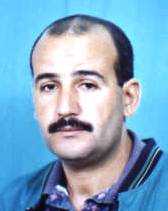TRIAL just won a seventh case against Algeria before the United Nations Human Rights Committee concerning Mr. Djaafar Sahbi’s enforced disappearance in 1995.. The NGO welcomes the Committee’s decision and hopes that light will be shed on the serious human rights violations that took place during the Algerian internal conflict and that impunity will no longer protect the perpetrators of these crimes.
 The arrest and disappearance of Djaafar Sahbi took place in the context of thousands of other enforced disappearances of Algerian citizens who were in the hands of the army or State agents during the civil war in Algeria between 1992 and 2002. Employed at the Mustapha Bacha Hospital in Alger, married and father of two children, Mr. Sahbi was arrested by the police in July 1995 and hasn’t been seen by his family members ever since. A few days after his arrest, the police entered by force in his house and seized a number of documents including his “livret de famille”. Since then, Mr. Sahbi’s relatives seized all the competent authorities to clarify the fate of the disappeared, but without success. Despite the constant efforts of the family, the Algerian authorities have not provided them with any information about the disappeared’s fate and did not conduct any effective investigation into his disappearance. No charges were brought against the alleged perpetrators.
The arrest and disappearance of Djaafar Sahbi took place in the context of thousands of other enforced disappearances of Algerian citizens who were in the hands of the army or State agents during the civil war in Algeria between 1992 and 2002. Employed at the Mustapha Bacha Hospital in Alger, married and father of two children, Mr. Sahbi was arrested by the police in July 1995 and hasn’t been seen by his family members ever since. A few days after his arrest, the police entered by force in his house and seized a number of documents including his “livret de famille”. Since then, Mr. Sahbi’s relatives seized all the competent authorities to clarify the fate of the disappeared, but without success. Despite the constant efforts of the family, the Algerian authorities have not provided them with any information about the disappeared’s fate and did not conduct any effective investigation into his disappearance. No charges were brought against the alleged perpetrators.
This case is the seventh submitted by TRIAL leading to a condemnation. In 2011 and 2012, the Human Rights Committee and the Committee against Torture had already condemned Algeria, respectively, for five cases of enforced disappearances and one case of death under torture. Twelve other cases defended by TRIAL are pending against Algeria before the Human Rights Committee and the Committee against Torture. In total, TRIAL submitted more than 130 cases before different international bodies (European Court of Human Rights, the Human Rights Committee and the Committee against Torture), concerning enforced disappearances, extrajudicial executions and torture in Algeria, Bosnia-Herzegovina, Burundi, Libya and Nepal.
In its decision, the Human Rights Committee observed that Mr. Djaafar Sahbi’s enforced disappearance constituted a violation by Algeria of several provisions of theInternational Covenant on Civil and Political Rights, in particular the right to life, the right to liberty, the right not to be subjected to torture and other ill-treatment and the right to respect for private and family life and home. Because of these violations, Algeria also ill-treated the missing person’s family members due to the psychological suffering that they had to overcome after his disappearance.
The Committee now asks Algeria to “conduct a full and thorough investigation into the disappearance of Djaafar Sahbi”. Algeria must also “provide the author and his family with detailed informations about the results of the investigation”, “and immediately release Djaafar Sahbi if he is still held incommunicado” or “return his remains to his family” in case of death. The Committee also stressed Algeria’s obligation to “prosecute, try and punish those responsible for violations”. Algeria must also provide adequate compensation to the victim’s family for the violations suffered.
Algeria must also guarantee the effectiveness of its domestic legal system, particularly with regard to the victims of torture, extrajudicial executions and enforced disappearances and take measures to prevent such violations from recurring.
For more information:
See the summary of the case on the site Sahbi TRIAL

 The arrest and disappearance of Mr. Mezine occurred within the general context of the enforced disappearance of thousands of Algerian citizens at the hands of the army or the State security forces during Algerian civil war from 1992 to 2002.
The arrest and disappearance of Mr. Mezine occurred within the general context of the enforced disappearance of thousands of Algerian citizens at the hands of the army or the State security forces during Algerian civil war from 1992 to 2002.